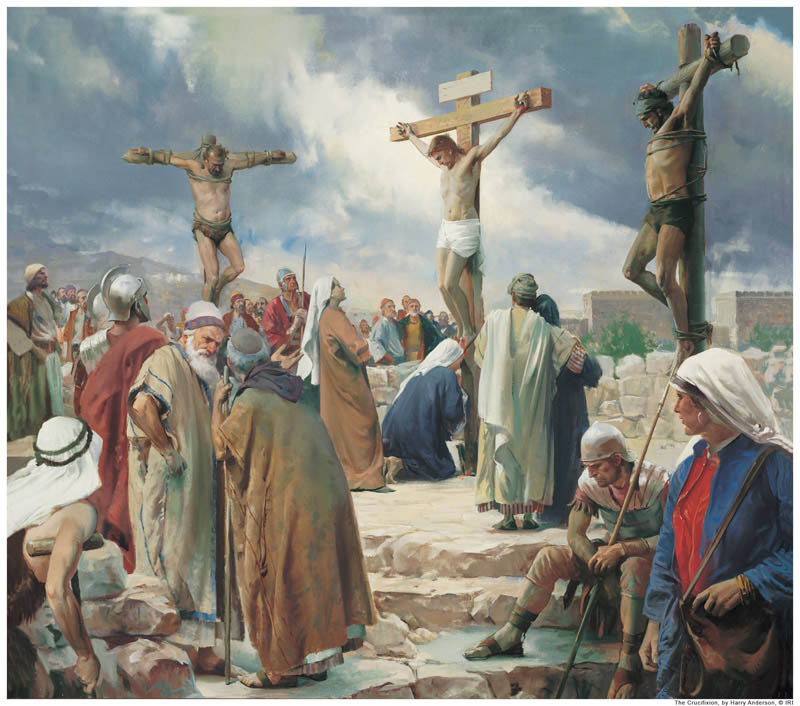In 1 Nephi, chapter 19, Nephi discusses the life of the Savior, who would come far into the future. He talks about the Savior’s death and the persecutions the Jewish people would face as a result. The Book of Mormon Student Manual clarifies misunderstandings some people have concerning this subject:
“For centuries apostate Christianity used the crucifixion of Jesus as an excuse for persecuting the Jews. Occasionally people still say, “This long history of rejection is the punishment for what they did to Jesus.”
In his quoting of Zenos in 1 Nephi 19:13–19, Nephi gave us some important insights into the Jews and their tragic history. There is no indication that because they are “scourged by all people, because they crucify the God of Israel” (v. 13) this scourging is initiated by God….
…Anyone who thinks that persecution of the Jews or other minority groups is pleasing to God is in deep need of repentance (see 2 Nephi 29:5).”
Even in the United States of America, a nation founded on religious freedom, people have been, and continue to be persecuted for their religious beliefs. From its beginnings, some people have tried to make religious freedom apply only to their only religions. Since God planned the United States as a place where the restored gospel could flourish, Latter-day Saints often see this as Satan’s efforts to put an end to the spread of truth.
The Church of Jesus Christ of Latter-day Saint has an Article of Faith that says that we give all others the right to worship as they see fit and ask the same privilege of ourselves. With this in mind, it’s not appropriate for any Latter-day Saint to harass or persecute another for his faith. Latter-day Saints are taught to show respect for the beliefs of others. While this doesn’t, of course, preclude missionary work, it does show an expectation of respectful missionary work, focused on what we teach, not on what others teach.
Hate crimes and persecution have no place in the Savior’s gospel of love. The Savior himself, on the cross, asked God to forgive those who crucified him. If He could do this, can we do any less? This is true of the Jewish people, as we see in 2 Nephi 29:5, and it is also true of all others who worship differently than we do. It is what God expects of all His children, regardless of their current faith.
“As I have loved you, love one another.”
For more on the whys of persecution, visit LDS.org and read “Why Did People Act This Way?”
The late Terrie Lynn Bittner—beloved wife, mother, grandmother, and friend—was the author of two homeschooling books and numerous articles, including several that appeared in Latter-day Saint magazines. She became a member of the Church at the age of 17 and began sharing her faith online in 1992.


